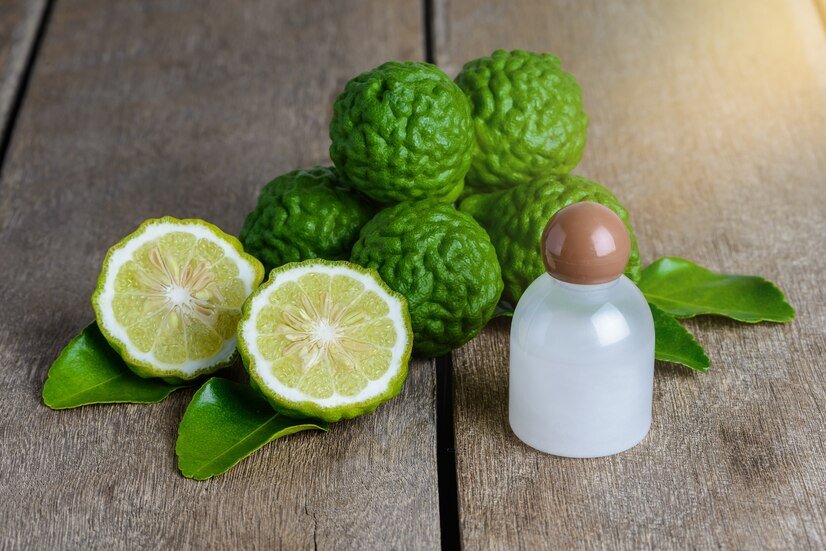Bergamot is a unique and highly sought-after fragrance note in the world of perfumes, essential oils, and culinary applications. But what exactly does bergamot smell like? If you’re unfamiliar with this citrus fruit, its aroma can be quite surprising. This article will dive into the distinct Bergamot Smell Like explore how it is used in various industries, and uncover the reasons behind its popularity.
What Is Bergamot?
Bergamot is a small, pear-shaped citrus fruit that is primarily grown in the Calabria region of Southern Italy. The fruit is known for its bright yellow-green skin and is often associated with its essential oil. The scientific name of the plant is Citrus bergamia. Though it may resemble a lime or an orange, bergamot has its own distinct aroma and flavor profile that sets it apart.
Bergamot essential oil is extracted from the peel of the fruit, and it’s this oil that gives bergamot its characteristic fragrance. The scent is complex and multifaceted, making it a favorite ingredient in a wide variety of products, including perfumes, skin care, and aromatherapy.
What Does Bergamot Smell Like?
When it comes to describing Bergamot Smell Like most people would agree that it is a refreshing and uplifting fragrance. The aroma can be broken down into several components, making it a truly unique scent. Here’s a breakdown of the primary characteristics of bergamot’s fragrance:
1. Citrusy and Tangy
The most dominant note in bergamot is its citrusy, tangy essence. Unlike other citrus fruits like oranges or lemons, bergamot has a more complex and layered citrus fragrance. It’s bright and sharp but not overwhelmingly sour. Instead, the tanginess has a slightly sweet edge that balances its intensity.
2. Floral Undertones
Bergamot also has a subtle floral aroma. This floral aspect is what gives bergamot its depth and richness, making it different from other citrus scents. The floral notes are delicate and gentle, with hints of orange blossom and jasmine. This makes bergamot a popular choice for perfumers who want to add a touch of elegance to their fragrance blends.
3. Spicy and Herbal Notes
Bergamot is not just citrus and floral. It also has a faintly spicy, almost peppery quality to its scent. The spicy undertones are reminiscent of herbs like basil or thyme, adding a warmth and complexity to the overall fragrance profile.
4. Slightly Woody
Finally, bergamot has a faint woody note that can be perceived as a grounding element. This woody base helps balance out the fruitiness and floral qualities of the scent, giving it a rounded and sophisticated finish.
How Is Bergamot Used in Fragrances?
Bergamot is a key component in many perfumes and colognes, particularly in citrus-based or aromatic fragrances. Its refreshing and invigorating aroma makes it a popular choice for both men’s and women’s scents. It’s commonly used in eau de toilette, eau de parfum, and cologne formulas.
Bergamot in Classic Perfumes
One of the most famous fragrances that feature bergamot as a key note is Eau de Cologne, a light, citrusy perfume that has been popular for centuries. Bergamot is often used as a top note in such compositions, providing an initial burst of freshness that gradually evolves as the other notes come to the forefront.
Additionally, bergamot is often found in modern perfumes like Chanel No. 19, Acqua di Parma Colonia, and Tom Ford’s Neroli Portofino, where it blends seamlessly with other citrus fruits, florals, and woody notes.
Bergamot in Aromatherapy
Bergamot is also widely used in aromatherapy due to its uplifting and mood-enhancing properties. The essential oil of bergamot is often included in diffusers and massage oils to promote relaxation, reduce stress, and alleviate anxiety. Its fresh and energizing scent is said to help boost confidence, promote positivity, and encourage mental clarity.
Bergamot in Skin Care
Beyond fragrances and aromatherapy, bergamot oil is also used in skincare products for its antiseptic and anti-inflammatory properties. It can help treat conditions such as acne, oily skin, and minor skin irritations. Some skincare products, like creams, cleansers, and lotions, contain bergamot to provide a refreshing and natural scent while delivering its beneficial properties.
Culinary Uses of Bergamot
While bergamot is mainly associated with its aromatic qualities, it also plays an important role in the culinary world. The most common culinary use of bergamot is in the production of Earl Grey tea. The tea is flavored with the oil of the bergamot fruit, imparting a unique citrus-floral note to the drink.
Bergamot vs. Other Citrus Scents
When compared to other citrus fruits, bergamot stands out for its complexity. Here’s a quick comparison to help you understand how bergamot differs from other familiar citrus smells:
- Lemon: Lemon is sharp and zesty with a clean, pure citrus scent. It’s more straightforward than bergamot, which has more depth and nuance.
- Orange: Orange has a sweet, fruity fragrance with a slightly tangy undertone, but it lacks the floral and spicy complexity found in bergamot.
- Grapefruit: Grapefruit has a bitter-sweet and tangy aroma that’s somewhat similar to bergamot but without the floral or spicy notes.
Conclusion
Bergamot’s fragrance is a wonderful mix of citrusy sharpness, delicate floral undertones, and subtle spicy warmth. It is this complex blend of aromas that makes it so beloved in perfumes, essential oils, and skincare. Whether you encounter it in a fresh cologne, an uplifting aromatherapy blend, or a cup of Earl Grey tea, bergamot is a scent that can transport you to sunny Mediterranean landscapes, offering an invigorating and refreshing experience.
FAQs
1. What does bergamot smell like in perfume?
In perfume, bergamot smells like a fresh, tangy citrus with floral and slightly spicy undertones. It is often used as a top note, offering a clean, uplifting burst of fragrance.
2. Is bergamot a citrus?
Yes, bergamot is a type of citrus fruit, closely related to oranges and lemons, but with a distinct aroma that combines citrus, floral, and spicy notes.
3. Can bergamot essential oil help with stress?
Yes, bergamot essential oil is known for its mood-boosting properties. It can help reduce stress and anxiety when used in aromatherapy or massage oils.
4. What is the best way to use bergamot for skin care?
Bergamot oil is often used in facial cleansers, moisturizers, and acne treatments. It’s important to dilute the essential oil with a carrier oil before applying it to the skin.
5. Can you eat bergamot?
While you can technically eat bergamot, it is most commonly used in its oil form, especially in Earl Grey tea. The fruit itself is not typically consumed raw but used for flavoring.
6. Where does bergamot grow?
Bergamot is mainly grown in the Calabria region of Southern Italy, although it is also cultivated in other Mediterranean countries, as well as parts of Africa and Asia.











